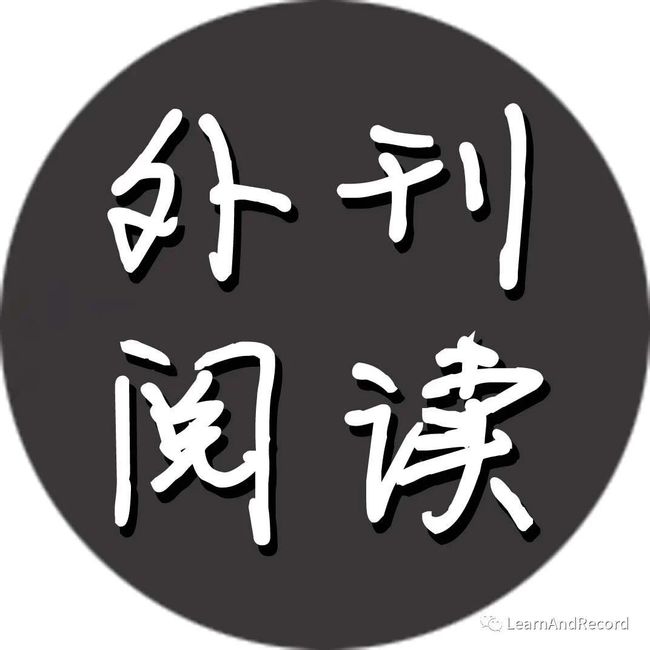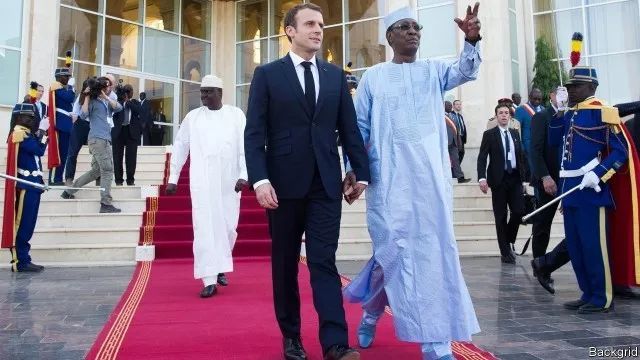- 2018-07-23-催眠日作业-#不一样的31天#-66小鹿
小鹿_33
预言日:人总是在逃避命运的路上,与之不期而遇。心理学上有个著名的名词,叫做自证预言;经济学上也有一个很著名的定律叫做,墨菲定律;在灵修派上,还有一个很著名的法则,叫做吸引力法则。这3个领域的词,虽然看起来不太一样,但是他们都在告诉人们一个现象:你越担心什么,就越有可能会发生什么。同样的道理,你越想得到什么,就应该要积极地去创造什么。无论是自证预言,墨菲定律还是吸引力法则,对人都有正反2个维度的影响
- 使用Faiss进行高效相似度搜索
llzwxh888
faisspython
在现代AI应用中,快速和高效的相似度搜索是至关重要的。Faiss(FacebookAISimilaritySearch)是一个专门用于快速相似度搜索和聚类的库,特别适用于高维向量。本文将介绍如何使用Faiss来进行相似度搜索,并结合Python代码演示其基本用法。什么是Faiss?Faiss是一个由FacebookAIResearch团队开发的开源库,主要用于高维向量的相似性搜索和聚类。Faiss
- Faiss Tips:高效向量搜索与聚类的利器
焦习娜Samantha
FaissTips:高效向量搜索与聚类的利器faiss_tipsSomeusefultipsforfaiss项目地址:https://gitcode.com/gh_mirrors/fa/faiss_tips项目介绍Faiss是由FacebookAIResearch开发的一个用于高效相似性搜索和密集向量聚类的库。它支持多种硬件平台,包括CPU和GPU,能够在海量数据集上实现快速的近似最近邻搜索(AN
- Faiss:高效相似性搜索与聚类的利器
网络·魚
大数据faiss
Faiss是一个针对大规模向量集合的相似性搜索库,由FacebookAIResearch开发。它提供了一系列高效的算法和数据结构,用于加速向量之间的相似性搜索,特别是在大规模数据集上。本文将介绍Faiss的原理、核心功能以及如何在实际项目中使用它。Faiss原理:近似最近邻搜索:Faiss的核心功能之一是近似最近邻搜索,它能够高效地在大规模数据集中找到与给定查询向量最相似的向量。这种搜索是近似的,
- 这个世界为何对女性这么苛刻
遇见知见
图片发自App当今社会的女性,简直用金刚侠来形容都不为过。虽然早已过了男尊女卑的时代,但是这个世界并没有平等的对待女性。新时代的女性标准:上得了厅堂,下得了厨房,杀得了木马,翻得了围墙,开得起好车,买得起新房,斗得过二奶,打得过流氓,生得了孩子,养得了家庭。这个社会对女性有太多的不公平,既要求女性经济独立,又要求女性贤良淑德。所有的女性的在成长过程中没有任何一项是因为你是女性而给你开绿灯的。图片发
- 提高教师信息素养,提高道德与法治课教学效益
长白159宋彦红
提高教师信息素养,提高道德与法治课教学效益随着经济和社会的发展,信息技术已经运用到课堂教学中,为课堂教学展示了一个崭新的天地。的确,信息技术形象、生动、直观性强,能够将课本中的一些抽想的概念直接展示在学生面前,从而调动学生的眼、耳、脑,让他们兴奋起来,变被动学习为主动学习,充分发挥教师的教育引导作用,创造一个可以使学生积极参与的场景。在制作、使用信息技术的实践过程中,本文拟就教师提升信息素养的必要
- 一个纯真姑娘被现实社会磨灭了热情
幽律
每个初入社会的人,都是满怀憧憬,热情对待这个社会,可往往都是被回馈以欺骗,恐吓,磨灭了热情。我的一个朋友,小吴,来自安徽的姑娘,初出校门,来到这座南方经济发达的城市,善良单纯,待人对事充满了朝气与热情。当时小吴所在的房产中介公司有一位女客户,是退休教师,谈吐方面能感觉得到很有素质,和她先生想要买房,小吴接待的。了解情况后,客户感觉经济方面还是有点压力的,所以委托小吴先帮她卖自己的旧房,周转开来再买
- “元宇宙”带不动Meta?基本业务已“后院起火”!小扎举步维艰!
链科天下
由于宏观经济疲软、市场动荡,“放缓”已经成为美国科技股的主线逻辑,曾风光无限的科技巨头Meta也开始一路下行、举步维艰。据彭博社报道,Meta已宣布计划裁员并重组团队以削减预算,这是该公司2004年成立以来首次大幅削减预算。此次裁员或受到业绩低迷的影响,Q2财报显示Meta业绩远不及预期,上市以来营收同比出现首次下滑,净利连续三季度下降。扎克伯格表示,“希望经济能够稳定下来,但从目前的情况来看并非
- 圣诞节后的人气又回来了?好丽友、特斯拉们的生意却不好做| 每周热点汇总
饭Sir看天下
新的一年来了大家好,今天是2022年12月26日,星期一,农历十二月初四。这个月,相信我们很多人都遇到了身体不适的情况,饭Sir上周也因为发烧不得不停更了一周,这几天才刚刚恢复,好在这一切最后都能过去。疫情之外,一些好消息也逐渐到来,例如北京等多座大城市在年底的圣诞节期间又恢复了生机,一些迹象也在预示着久违的热闹春节要回来了。但另一方面,明年不确定的经济形势又带来一些不利的消息,不禁让人有些担心。
- 分享十个渠道:高仿手表在哪里买最好的优选渠道
百奢之家
1、工厂购买,推荐靠谱手表商家微信:【15266277】目前买的人最多的渠道。2、某宝购买,价格较高,质量没有保障。3、拼夕夕,价格是便宜,但是质量不敢想象。4、专柜购买,数量较少,经常断货,价格也太高不好接受。5、批发市场购买,可遇不可求,一般生活在批发市场附近的,根本不用考虑在哪里买手表作为一件配饰品,不仅可以提升整体造型品味,还能展现个人的时尚态度。而对于很多人来说,高仿手表是一种经济实惠又
- 康定城,一颗镶嵌在康巴藏区上的明珠,一曲《康定情歌》传唱至今
蚕子桑叶
蚕子在桑叶上行走,小编在地球上旅游,嗨,大家好,我们又见面了!今天继续向大家分享我的“川西自驾游日记”。康定是甘孜州州府所在地。康定历史悠久,是川藏咽喉,茶马古道重镇,藏汉交汇中心。自古以来就是康巴藏区政治、经济、文化、商贸、信息中心和交通枢纽。康定系汉语名,因丹达山以东为“康”,取康地安定之意,故名。藏语称康定为“打折多”,意为打曲(雅拉河)、折曲(折多河)两河交汇处。这里海拔低了不少(2560
- 揭秘上海陆家嘴的风水大战(二)
仙扑门
上文我们说到,日建立的全球金融中心一斩陆家嘴经济商业圈,二斩黄浦江上游龙脉,看我中如何应对反击风水挑衅?针对大刀来斩这样的“刀煞”,我们一般有三种策略:第一:硬碰硬,不成功便成仁。第二:盾牌保护,自保策略。第三:借力打力,顺势化解。我们先来看第一种:硬碰硬,不成功便成仁。你搞了个刀,我也搞个大刀,双刀相向,看谁狠!这种方法是否可行?我们都知道,两者之战必然会累及周围“无辜群众”,造成不必要的意外伤
- 经济金融学公开课学习总汇(九)
佳佳爱科技AITech
本章内容:1.什么是金融风险2.什么是风险偏好与满意度,人都是风险厌恶吗3.单一投资还是多元投资4.无差别曲线金融风险:金融风险是指金融变量的各种可能值偏离期望的可能性以及幅度,所以风险不是说,一定会发生概率的亏损或者偏离回报,它也有可能发生超额的回报作为理财的投资人,我们一般只关注系统风险(经济环境不好造成房市大跌等)。还有非系统性风险(购买理财,卷款跑路等)。其中系统风险是可分散的风险;后者是
- 【中国国际航空-注册_登录安全分析报告】
风控牛
验证码接口安全评测系列安全行为验证极验网易易盾智能手机
前言由于网站注册入口容易被黑客攻击,存在如下安全问题:1.暴力破解密码,造成用户信息泄露2.短信盗刷的安全问题,影响业务及导致用户投诉3.带来经济损失,尤其是后付费客户,风险巨大,造成亏损无底洞所以大部分网站及App都采取图形验证码或滑动验证码等交互解决方案,但在机器学习能力提高的当下,连百度这样的大厂都遭受攻击导致点名批评,图形验证及交互验证方式的安全性到底如何?请看具体分析一、中国国际航空PC
- 积累,来不得半点虚功
荣庭de日拱一卒
初夏陪客人游莫干山,感受到莫干山的变化,比如新启用的“全国中青年经济改革研讨会”纪念场所。但在陪同游览中,进一步确证:自己对莫干山“一无所知”。别墅群的来历,重要人物的游历,管理的级别及权属,如此等等,如果没有资深的导游在,过程中的尴尬真不知几何。从事地方史志,虽然术业有专攻,但凡属重要的地方人文景观,如果做不到基本了解,除了用功不勤、用力不深外,还有什么好说的呢?任何时候开始都不晚,关键在于珍惜
- 2005年高考英语北京卷 - 阅读理解C
让文字更美
Howcouldwepossiblythinkthatkeepinganimalsincagesinunnaturalenvironments-mostlyforentertainmentpurposes-isfairandrespectful?我们怎么可能认为把动物关在非自然环境的笼子里——主要是为了娱乐目的——是公平和尊重的呢?Zooofficialssaytheyareconcernedab
- 看的信息越来越多,我却越来越焦虑了……
灰咖儿
01看的信息越多,我感到越来越焦虑不知道为什么,有了手机作为消遣,却让人越来越感到焦虑。抖音、快手、知乎、小红书、、今日头条、喜马拉雅、得到……手机里装着越来越多的APP,每一个打开都是扑面而来的信息,除了纯粹的消遣,还为了能够学点东西、提高自己。但是要学的东西实在太多了,大到国际形势、国内经济、历史人文,小到股市分析、楼市信息、潮装搭配、美妆教学、生活技巧、健身诀窍、职场生存,每一个似乎都值得一
- 2020.5.20【第三十八天打卡】
CY的好运很哇塞呦
2020.5.20【第三十八天打卡】:一、今日进度:1.会计直播课程:《经济法基础》两个小时,主要内容:经济法基础相关理论知识~纯理论的课程,加上心里的烦躁,完整地听完一节课,真的是太难为自己了,需要明天重新看一遍回放。2.读其他书7章。二、今日待进步:1.练字0%2.表格学习0%3.TED0%三、明日安排:(一)每日常规三件事:1.读书半小时2.练字半小时3.学习半小时(二)每日新增一事(兴趣工
- 心情不好时,去做这四件事
绿茵下
01读书当一个人的智慧不够时,最容易胡思乱想,将自己困住思维的牢笼里。想要开悟,首先要与智者对话,与高人同行,那么与智者对话最经济实惠的方式,莫过于读书了。于时光的静美中,手捧一本高质量的书籍,在书中窥见先贤们的所思所想,仿佛进入了一个平静的世界,让人思绪越来越清晰明了。或许读书不能够马上帮你解决眼前的难题,可日复一日地坚持下去,总能让你内心更加笃定,心灵更加沉静,生出智慧之花。在书中人物不同的经
- “2020”马云最新消息,亿万人暴富火热生意,穷人翻身时代来了!
阿兰_5751
马云说:这次疫情的到来,导致传统生意越来越难做,越来越艰难,大家都知道,现在的购物都是在马桶,枕边,沙发上和各种APP上面去了,街上的人越来越少,营业员比逛超市的人还要多,互联网如果一旦能实现全部快速送达服务,那么传统实体经济真的剩不了几家了,如何响应国家号召共度难关,让所有人能够走出困境!分享经济那么什么是分享经济呢?分享一般就是说,遇到好的东西,不自觉地想推荐出去。这里先决条件一定是,在自己觉
- 如何做好人生的选择题?百科全书式天才——赫伯特·西蒙给你答案
伽马有话说
赫伯特·西蒙是谁?想必知道的人非常少。但当看到他的履历后,相信没有人再怀疑他是个“天才”。西蒙出生于1916年6月15日,是个美国人,他的名字全称为赫伯特·亚历山大·西蒙,在2001年2月9日与世长辞,在这84年的岁月中,西蒙以27岁时取得的政治学博士学位为开端,先后步入了政治学、管理学、认知心理学、信息科学、人工智能、科学哲学、应用数学、统计学、运筹学、控制论、数理经济学、公共管理等领域,在这些
- 【徐远 房产投资规划课(7)】(02.18):技术进步会逆转城市聚集吗?
格式化_001
微信图片_20181005125538.png声明以下内容来自徐远的分享。徐远介绍徐远:北京大学金融学教授,美国杜克大学经济学博士。其研究领域:宏观经济、金融经济、经济政策、房地产、城市化......本节思维框架新技术的出现新技术是否会引起房价下跌历史经验人们的交流是分不同层次的总结新技术的出现昨天的课程里,我给你重点讲了城市化对房价的影响。我们平常说房价高,其实主要说的是大城市的房价高。大城市聚
- 让真善美成为人格的中坚和个人IP标签
matou
大家都知道,价格围绕价值波动,这是符合逻辑的经济原理。一旦价格偏离了价值,作为生产价值的人就会焦虑不安,害怕价格会一路走低,自己的付出会打水漂。所以便产生了急功近利,希望价格波动小一些,希望价格上升快一些,甚至开始信奉价值应该围绕价格波动的理论。价格高蜂拥而上,价格降低又匆匆而退。忘了去创造价值,而是堕入焦虑,到处寻找收益高、前景好、风险低的项目。我们不惜牺牲健康、违背伦理、违反法律,只为先人一步
- 十年坚持做一件事,是怎样一种体验
作家格格
01今天,偶然看到了雨果奖得主郝景芳的故事。之前,我只觉得她是清华才女,天赋异能。今天才发现,原来她惊人的才华背后,也有不为人知的付出与汗水。许多人知道“郝景芳”这个名字,都是从2016年的雨果奖开始。但很少有人知道,在那之前,她其实已经坚持写作了十年。如果说在校读博还能为她提供比较宽松的环境(尽管她学的是和写作完全无关的经济管理),毕业后进入职场,写作便成为一桩难以继续的事情。拿着四千块的工资,
- 2024年还可以创业吗?做什么生意好?
古楼
2024年还可以创业吗?随着时代的不断发展和社会的变革,创业一直都是许多人梦寐以求的事情。然而,在经济环境和市场竞争日益激烈的情况下,很多人会思考:2024年还可以创业吗?多一个项目多一份收入,先给大家分享一个小编在做的网络项目,不用投资一分钱,只要淘宝、京东、拼多多、抖音、快手、唯品会等电商不倒,这个项目永久可做,而且收入稳定!网购你是直接下单吗?还是说用别人的口令和链接下单?千万不要这么做了,
- 经济变化的转折
悟道修行
中国正在经历百年未有之大变局,这一年将是中国新的起点,也将是无数人开始逆袭的一年。无论你从事什么行业,都必须对社会发展有全面理解,这篇文章旨在扩充大家的视野,一起提升格局!本文先后从个人,商业,世界三个角度诠释:第一部分:个人篇人类社会的发展路径:部落社会——村落社会——家族社会——家庭社会——个体社会。世界正变的越来越细致、周密。以前各种关系是面对面发生的,后来发展成了线对线,未来的世界,由各种
- C++[USACO06NOV] Fence Repair G合并果子
龙眠客
[USACO06NOV]FenceRepairG合并果子题目描述在一个果园里,多多已经将所有的果子打了下来,而且按果子的不同种类分成了不同的堆。多多决定把所有的果子合成一堆。每一次合并,多多可以把两堆果子合并到一起,消耗的体力等于两堆果子的重量之和。可以看出,所有的果子经过n-1n−1次合并之后,就只剩下一堆了。多多在合并果子时总共消耗的体力等于每次合并所耗体力之和。因为还要花大力气把这些果子搬回
- 恒信永利:优化行业风气严肃抵制“老赖”行为
叶有司
最近《中餐厅》屡上热搜,其中中年王子黄晓明可谓是凭借着经典语录又一次火爆了网络,“明学”之盛行,恒信永利想说,:“不要你觉得,只要我觉得!都听我的!恒信永利坚决抵制’老赖’行为!”在如今的“无现金社会”,人们的支付方式发生了巨大的改变,信用经济时代也已经随着“信用医疗”、“信用金融”等的出现而到来,信用借贷也应运而生了。谈及信用借贷,近年来兴起的消费分期借贷正是平台基于每个人的信用基础而提供的贷款
- P3489 [POI2009] WIE-Hexer
summ1ts
算法c++图论dijkstra状态压缩
*原题链接*最短路+状态压缩不愧是POI的题,看题面知道要求加了一些限制的最短路,看数据范围很容易想到状态压缩。求解最短路就用堆优化dijkstra好了。至于状态压缩,我们对原数组再开一维,表示此时“剑的集合”,相应的数组也要多开一维。由于此时的最短路有状态的限制,所以我们要用三元组来维护,如果不想写结构体也可以pair,int>。输入时存储边上的“怪物集合”,以及一个村庄的“铁匠集合”,在来到新
- P2865 [USACO06NOV] Roadblocks G(洛谷)(次短路)
叶子清不青
算法
开一个二维数组dis[N][2]分别记录最短路和次短路即可。dijkstra和spfa均可,推荐spfa。//dijkstra#includeusingnamespacestd;constintN=1e5+5;typedeflonglongll;typedefpairPII;intn,m,k;intT;priority_queue,greater>q;structnode{inte,w;};vec
- Enum 枚举
120153216
enum枚举
原文地址:http://www.cnblogs.com/Kavlez/p/4268601.html Enumeration
于Java 1.5增加的enum type...enum type是由一组固定的常量组成的类型,比如四个季节、扑克花色。在出现enum type之前,通常用一组int常量表示枚举类型。比如这样:
public static final int APPLE_FUJI = 0
- Java8简明教程
bijian1013
javajdk1.8
Java 8已于2014年3月18日正式发布了,新版本带来了诸多改进,包括Lambda表达式、Streams、日期时间API等等。本文就带你领略Java 8的全新特性。
一.允许在接口中有默认方法实现
Java 8 允许我们使用default关键字,为接口声明添
- Oracle表维护 快速备份删除数据
cuisuqiang
oracle索引快速备份删除
我知道oracle表分区,不过那是数据库设计阶段的事情,目前是远水解不了近渴。
当前的数据库表,要求保留一个月数据,且表存在大量录入更新,不存在程序删除。
为了解决频繁查询和更新的瓶颈,我在oracle内根据需要创建了索引。但是随着数据量的增加,一个半月数据就要超千万,此时就算有索引,对高并发的查询和更新来说,让然有所拖累。
为了解决这个问题,我一般一个月会进行一次数据库维护,主要工作就是备
- java多态内存分析
麦田的设计者
java内存分析多态原理接口和抽象类
“ 时针如果可以回头,熟悉那张脸,重温嬉戏这乐园,墙壁的松脱涂鸦已经褪色才明白存在的价值归于记忆。街角小店尚存在吗?这大时代会不会牵挂,过去现在花开怎么会等待。
但有种意外不管痛不痛都有伤害,光阴远远离开,那笑声徘徊与脑海。但这一秒可笑不再可爱,当天心
- Xshell实现Windows上传文件到Linux主机
被触发
windows
经常有这样的需求,我们在Windows下载的软件包,如何上传到远程Linux主机上?还有如何从Linux主机下载软件包到Windows下;之前我的做法现在看来好笨好繁琐,不过也达到了目的,笨人有本方法嘛;
我是怎么操作的:
1、打开一台本地Linux虚拟机,使用mount 挂载Windows的共享文件夹到Linux上,然后拷贝数据到Linux虚拟机里面;(经常第一步都不顺利,无法挂载Windo
- 类的加载ClassLoader
肆无忌惮_
ClassLoader
类加载器ClassLoader是用来将java的类加载到虚拟机中,类加载器负责读取class字节文件到内存中,并将它转为Class的对象(类对象),通过此实例的 newInstance()方法就可以创建出该类的一个对象。
其中重要的方法为findClass(String name)。
如何写一个自己的类加载器呢?
首先写一个便于测试的类Student
- html5写的玫瑰花
知了ing
html5
<html>
<head>
<title>I Love You!</title>
<meta charset="utf-8" />
</head>
<body>
<canvas id="c"></canvas>
- google的ConcurrentLinkedHashmap源代码解析
矮蛋蛋
LRU
原文地址:
http://janeky.iteye.com/blog/1534352
简述
ConcurrentLinkedHashMap 是google团队提供的一个容器。它有什么用呢?其实它本身是对
ConcurrentHashMap的封装,可以用来实现一个基于LRU策略的缓存。详细介绍可以参见
http://code.google.com/p/concurrentlinke
- webservice获取访问服务的ip地址
alleni123
webservice
1. 首先注入javax.xml.ws.WebServiceContext,
@Resource
private WebServiceContext context;
2. 在方法中获取交换请求的对象。
javax.xml.ws.handler.MessageContext mc=context.getMessageContext();
com.sun.net.http
- 菜鸟的java基础提升之道——————>是否值得拥有
百合不是茶
1,c++,java是面向对象编程的语言,将万事万物都看成是对象;java做一件事情关注的是人物,java是c++继承过来的,java没有直接更改地址的权限但是可以通过引用来传值操作地址,java也没有c++中繁琐的操作,java以其优越的可移植型,平台的安全型,高效性赢得了广泛的认同,全世界越来越多的人去学习java,我也是其中的一员
java组成:
- 通过修改Linux服务自动启动指定应用程序
bijian1013
linux
Linux中修改系统服务的命令是chkconfig (check config),命令的详细解释如下: chkconfig
功能说明:检查,设置系统的各种服务。
语 法:chkconfig [ -- add][ -- del][ -- list][系统服务] 或 chkconfig [ -- level <</SPAN>
- spring拦截器的一个简单实例
bijian1013
javaspring拦截器Interceptor
Purview接口
package aop;
public interface Purview {
void checkLogin();
}
Purview接口的实现类PurviesImpl.java
package aop;
public class PurviewImpl implements Purview {
public void check
- [Velocity二]自定义Velocity指令
bit1129
velocity
什么是Velocity指令
在Velocity中,#set,#if, #foreach, #elseif, #parse等,以#开头的称之为指令,Velocity内置的这些指令可以用来做赋值,条件判断,循环控制等脚本语言必备的逻辑控制等语句,Velocity的指令是可扩展的,即用户可以根据实际的需要自定义Velocity指令
自定义指令(Directive)的一般步骤
&nbs
- 【Hive十】Programming Hive学习笔记
bit1129
programming
第二章 Getting Started
1.Hive最大的局限性是什么?一是不支持行级别的增删改(insert, delete, update)二是查询性能非常差(基于Hadoop MapReduce),不适合延迟小的交互式任务三是不支持事务2. Hive MetaStore是干什么的?Hive persists table schemas and other system metadata.
- nginx有选择性进行限制
ronin47
nginx 动静 限制
http {
limit_conn_zone $binary_remote_addr zone=addr:10m;
limit_req_zone $binary_remote_addr zone=one:10m rate=5r/s;...
server {...
location ~.*\.(gif|png|css|js|icon)$ {
- java-4.-在二元树中找出和为某一值的所有路径 .
bylijinnan
java
/*
* 0.use a TwoWayLinkedList to store the path.when the node can't be path,you should/can delete it.
* 1.curSum==exceptedSum:if the lastNode is TreeNode,printPath();delete the node otherwise
- Netty学习笔记
bylijinnan
javanetty
本文是阅读以下两篇文章时:
http://seeallhearall.blogspot.com/2012/05/netty-tutorial-part-1-introduction-to.html
http://seeallhearall.blogspot.com/2012/06/netty-tutorial-part-15-on-channel.html
我的一些笔记
===
- js获取项目路径
cngolon
js
//js获取项目根路径,如: http://localhost:8083/uimcardprj
function getRootPath(){
//获取当前网址,如: http://localhost:8083/uimcardprj/share/meun.jsp
var curWwwPath=window.document.locati
- oracle 的性能优化
cuishikuan
oracleSQL Server
在网上搜索了一些Oracle性能优化的文章,为了更加深层次的巩固[边写边记],也为了可以随时查看,所以发表这篇文章。
1.ORACLE采用自下而上的顺序解析WHERE子句,根据这个原理,表之间的连接必须写在其他WHERE条件之前,那些可以过滤掉最大数量记录的条件必须写在WHERE子句的末尾。(这点本人曾经做过实例验证过,的确如此哦!
- Shell变量和数组使用详解
daizj
linuxshell变量数组
Shell 变量
定义变量时,变量名不加美元符号($,PHP语言中变量需要),如:
your_name="w3cschool.cc"
注意,变量名和等号之间不能有空格,这可能和你熟悉的所有编程语言都不一样。同时,变量名的命名须遵循如下规则:
首个字符必须为字母(a-z,A-Z)。
中间不能有空格,可以使用下划线(_)。
不能使用标点符号。
不能使用ba
- 编程中的一些概念,KISS、DRY、MVC、OOP、REST
dcj3sjt126com
REST
KISS、DRY、MVC、OOP、REST (1)KISS是指Keep It Simple,Stupid(摘自wikipedia),指设计时要坚持简约原则,避免不必要的复杂化。 (2)DRY是指Don't Repeat Yourself(摘自wikipedia),特指在程序设计以及计算中避免重复代码,因为这样会降低灵活性、简洁性,并且可能导致代码之间的矛盾。 (3)OOP 即Object-Orie
- [Android]设置Activity为全屏显示的两种方法
dcj3sjt126com
Activity
1. 方法1:AndroidManifest.xml 里,Activity的 android:theme 指定为" @android:style/Theme.NoTitleBar.Fullscreen" 示例: <application
- solrcloud 部署方式比较
eksliang
solrCloud
solrcloud 的部署其实有两种方式可选,那么我们在实践开发中应该怎样选择呢? 第一种:当启动solr服务器时,内嵌的启动一个Zookeeper服务器,然后将这些内嵌的Zookeeper服务器组成一个集群。 第二种:将Zookeeper服务器独立的配置一个集群,然后将solr交给Zookeeper进行管理
谈谈第一种:每启动一个solr服务器就内嵌的启动一个Zoo
- Java synchronized关键字详解
gqdy365
synchronized
转载自:http://www.cnblogs.com/mengdd/archive/2013/02/16/2913806.html
多线程的同步机制对资源进行加锁,使得在同一个时间,只有一个线程可以进行操作,同步用以解决多个线程同时访问时可能出现的问题。
同步机制可以使用synchronized关键字实现。
当synchronized关键字修饰一个方法的时候,该方法叫做同步方法。
当s
- js实现登录时记住用户名
hw1287789687
记住我记住密码cookie记住用户名记住账号
在页面中如何获取cookie值呢?
如果是JSP的话,可以通过servlet的对象request 获取cookie,可以
参考:http://hw1287789687.iteye.com/blog/2050040
如果要求登录页面是html呢?html页面中如何获取cookie呢?
直接上代码了
页面:loginInput.html
代码:
<!DOCTYPE html PUB
- 开发者必备的 Chrome 扩展
justjavac
chrome
Firebug:不用多介绍了吧https://chrome.google.com/webstore/detail/bmagokdooijbeehmkpknfglimnifench
ChromeSnifferPlus:Chrome 探测器,可以探测正在使用的开源软件或者 js 类库https://chrome.google.com/webstore/detail/chrome-sniffer-pl
- 算法机试题
李亚飞
java算法机试题
在面试机试时,遇到一个算法题,当时没能写出来,最后是同学帮忙解决的。
这道题大致意思是:输入一个数,比如4,。这时会输出:
&n
- 正确配置Linux系统ulimit值
字符串
ulimit
在Linux下面部 署应用的时候,有时候会遇上Socket/File: Can’t open so many files的问题;这个值也会影响服务器的最大并发数,其实Linux是有文件句柄限制的,而且Linux默认不是很高,一般都是1024,生产服务器用 其实很容易就达到这个数量。下面说的是,如何通过正解配置来改正这个系统默认值。因为这个问题是我配置Nginx+php5时遇到了,所以我将这篇归纳进
- hibernate调用返回游标的存储过程
Supanccy2013
javaDAOoracleHibernatejdbc
注:原创作品,转载请注明出处。
上篇博文介绍的是hibernate调用返回单值的存储过程,本片博文说的是hibernate调用返回游标的存储过程。
此此扁博文的存储过程的功能相当于是jdbc调用select 的作用。
1,创建oracle中的包,并在该包中创建的游标类型。
---创建oracle的程
- Spring 4.2新特性-更简单的Application Event
wiselyman
application
1.1 Application Event
Spring 4.1的写法请参考10点睛Spring4.1-Application Event
请对比10点睛Spring4.1-Application Event
使用一个@EventListener取代了实现ApplicationListener接口,使耦合度降低;
1.2 示例
包依赖
<p

